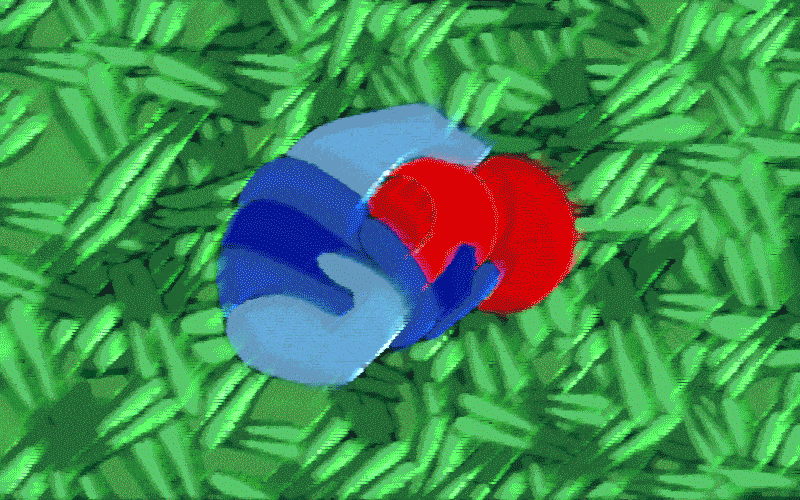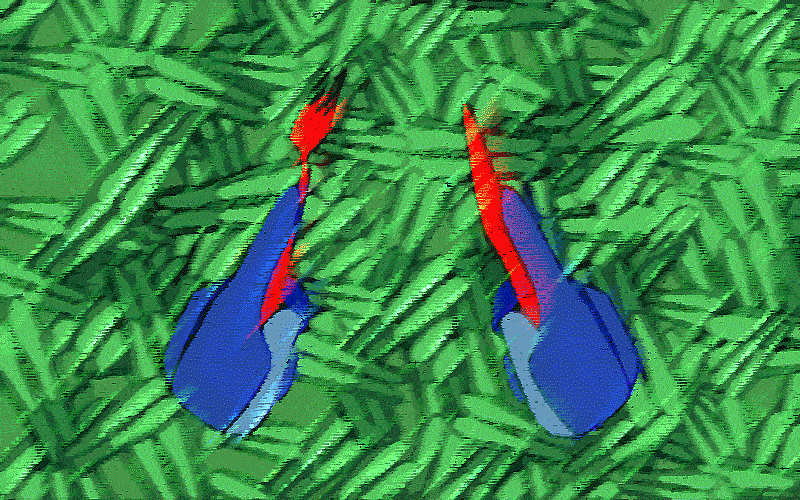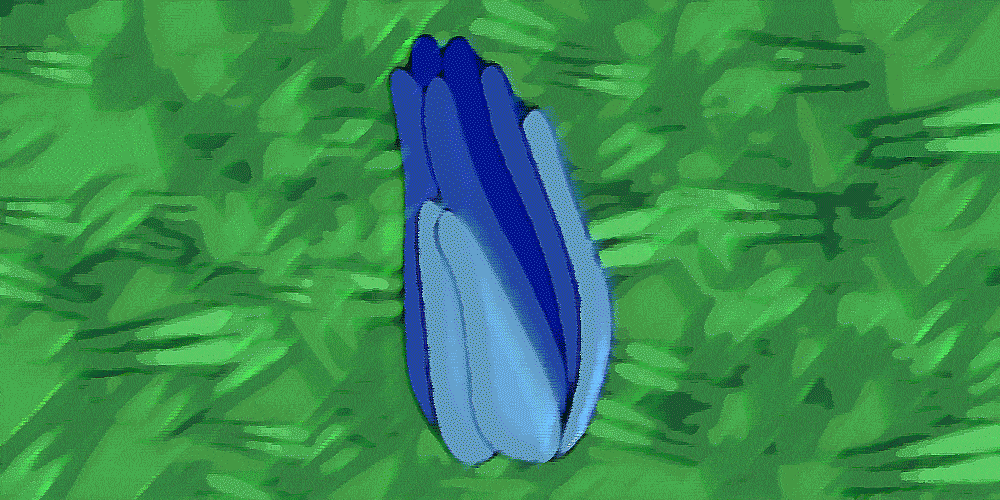It started with the proper amount of shame. I snuck squirts of hand sanitizer after touching student papers and practiced social distancing before it became standard. But I quickly learned that I couldn’t harness the monster with a few squirts of sanitizer — I had to burn off the skin. If my hands weren’t beet red and bleeding, I wasn’t safe.
I’m unsure how many times I washed my hands during those days, but I know that I protected them from everything but me. I didn’t allow them to touch doorknobs—the bottom of a shirt or dress did that job. They couldn’t touch carts at Costco or my friends’ backs when they embraced me for a hug. So they stopped hugging me. I didn’t want anyone to touch me. I couldn’t take the risk.
There was a time I never thought of my hands. They did what they were supposed to do, and I didn’t give them a moment’s attention. They weren’t the center of my universe. They were utilitarian and unremarkable. I didn’t concern myself with nail polish or rings, too focused on other things to care about adornment. I didn’t love my hands, and I didn’t hate them, because I didn’t know them the way I know them now.

Throughout my teens, my hands didn’t understand hard work. They weren’t calloused or war-beaten. The most I put them through was one too many passes on the oboe when my mother made me practice and late nights of writing fanfiction with my friends in notebooks we had decoupaged with the faces of our favorite Teen Beat stars.
I played soccer. Hands weren’t necessary for soccer. I was a forward and never the person to toss the ball into play. My legs carried me up and down the soccer field, just as they’d lifted me through arabesques and leaps in ballet. When I wore the skirts that my mother warned me not to wear, my legs garnered glances from boys, and I liked that. I loved my legs because I understood them—what they did, what they represented, how they served me.
My hands served me too, but not as much as they would eventually scare me. They went from being commonplace to becoming my greatest enemy, my most vulnerable portal to places I didn’t want to go. I never thought of my hands until I thought of nothing but them.
I was 30 when my hands took hold of my life. My husband and I were dealing with infertility. His, not mine, but ours. It was ours but mostly mine because I needed to get the shots; I needed to grow an absurd amount of eggs in my supercharged body so a doctor could harvest them and marry them with the sperm of the man I’d married three years before.
Our reproductive endocrinologist, Dr. Patel, was amazing. We chose him because he didn’t mince words. He deemed our chances of getting pregnant without medical intervention as likely “as hitting a golf ball to the moon,” and I told him to take our life savings and to help me get pregnant.
Every day we injected hundreds of dollars’ worth of drugs into my butt muscles before I headed to work. I was a middle school teacher, and it was October — flu season with a bunch of kids who weren’t aware of how to cover their coughs. Dr. Patel had warned me that a fever, even a low-grade temp, would fry my eggs. That would be thousands of dollars down the drain all because I was irresponsible and didn’t protect myself from getting sick. He was a truth-teller, that’s why I wanted to go with him in the first place, but he didn’t know that his truth would reveal mine. And there was a lot to expose.
My mother had me in therapy from the time I was nine. My father’s psychiatrist told her it benefited children of depressed parents to speak to someone from an early age. After our first meeting, Dr. Chefski informed my mother that I had Generalized Anxiety Disorder, and my mother reminded him that we’re Jewish, and we all do. My Jewish stomach had a hard time tolerating dairy or any small wave of anxiety. She resisted the doctor’s recommendation to put me on medication until I was 17. All it took was one fateful night of vomiting my way through my father’s birthday — and according to my disappointed father — “ruined his night.” Obsessive thoughts and a crippling fear of getting sick the way I had that night were enough for my mother to allow me to go on anti-anxiety medication. My anxiety planted the seeds for a more formidable illness.
Nearly ten years after taking my first pill, my otherwise under control Obsessive Compulsive Disorder gained force as I weaned off my Zoloft in anticipation of getting pregnant. While the medication is considered safe for pregnant women, I halted my intake just to be exceptionally safe — because anxiety. Facing in vitro fertilization was challenging enough but dealing with it while unmedicated was a brand-new beast.
I held tight to my husband because his was the only hand I would hold — but only after he undertook a strict routine of cleanliness. He said nothing about the way my anxiety had manifested itself. He recognized my sacrifice to build our family, the black and blue marks all over my lower back, how painful it became to sit. He would not complain about how I cosseted my hands, not when they were watching out for our investment.
I saw the way he looked at me, how everyone did. I wore gloves to school, wool gloves because I was “cold.” There was no hiding it anymore. They all knew that I’d snapped, that my hands were tugging me down a spiral. I could tell by their sad stares. I wouldn’t touch the microwave in the teacher’s lounge without a paper towel wrapped around my finger. Everything I did was a process, and every process began with two minutes of handwashing with steaming hot water. I wasn’t secretive about IVF or my germaphobia, but I never shared the lengths I took to ensure my cleanliness. They thought they saw a lot when I stood at the sink for half of my lunch break — a wash before the microwave, one after, another once I had eaten my food, and the last trip for good measure — but they didn’t know the half of it.
At home, I sprayed the cracks and wounds with bleach, relishing the excruciating sting. The sound of the faucet running was an aphrodisiac, the only release I found that poked at the problem. I loved the scent of the soaps I collected from Bath and Body Works; there wasn’t a more soothing smell than Eucalyptus Mint from their aromatherapy line. The bottle touted stress relief. Stress relief — was that a thing?
I would stand over the stark white ceramic basin, wondering why it wasn’t black. My hands were filthy. I felt the germs crawling on my skin, but I never saw them fall away from me. I needed to know they were gone, that they couldn’t squander our investment, wouldn’t make me sick through birthday dinners, wouldn’t cause me to let people down, to be a problem.

I saw a therapist who specialized in infertility. She understood the emotions that surrounded a person’s desperation to have a child, but she wasn’t ready for me. She told me to visualize myself somewhere else to escape the germs, so I placed myself in Paris. I sat at Ladurée eating macarons with a fork and knife. I ate nothing with my hands, but I wasn’t surprised the French found my behavior offensive. They were sophisticated, and I was sick. While visualizing, I enjoyed the raspberry vanilla macarons, and when I stopped imagining myself somewhere else, I was at my sink rubbing raspberry soap all over my skin. The flecks of glitter in the soap weren’t supposed to be irritating, but Bath and Body Works didn’t assume people would have hands like mine.
I despised my hands, so I did my best to hurt them. From hydrogen peroxide on the soft spots to rubbing alcohol on the open wounds, I wanted the pain. They were the biggest hurdle to my wellness, yet I needed them. No matter how much I tried to ignore them, they were there, being important. Contaminated. And I was at their mercy because they’d always been there, essential to my daily life.
I should have understood it sooner, but I had been shielded, medicinally corrected. How much horror had I allowed by being away from my post? Maybe none. Perhaps only a few colds, but that didn’t matter. Everything could’ve changed with one rogue touch. I had to be careful. If I wasn’t, who would’ve been? I didn’t have control over many things, but I had control over the hands I hated. So I took it, and somehow they carried me.
I made it through two rounds of IVF without so much as a sniffle — 18 months without a virus, fever, or bug. I was weak, but my resolve was strong, and ultimately these hands held two babies simultaneously. Once my twins were born, I had to be better for them, for me. I didn’t want them to fear their hands the way I did, to feel danger with every touch. I went back on my medication when they were six months old. It took five days to get my life back. After a week, I saw glimpses and glimmers of an obsession-free future, a come to rest for my compulsions. That hope that it could be done was enough to carry me through to day ten, when I stopped thinking of my hands again and used them instead. •




